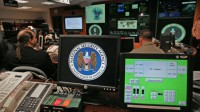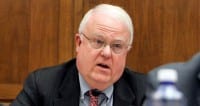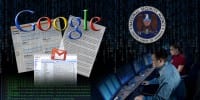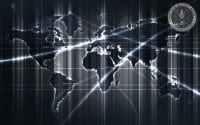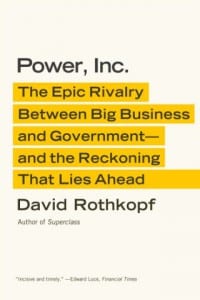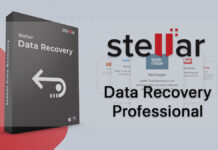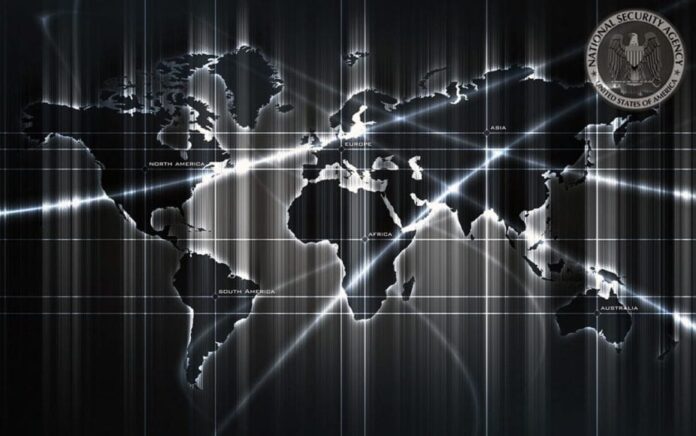
During a podcast on Occupy Radio, the host and a renowned security expert Bruce Schneier get to discuss the NSA practices in terms of treating citizen privacy and other related issues.

– Bruce Schneier is an internationally recognized expert on cryptography and data security. He was dubbed a “Security Guru” by the Economist magazine. His most recent book is “Liars and Outliers: Enabling the Trust that Society Needs to Thrive”. Bruce’s newsletter, Cryptogram, and his blog Schneier on Security are read by over a quarter of a million people. Thank you, Bruce, for joining me on Occupy Radio.
– Hey, thanks for having me.
– My pleasure. I have been looking forward to this interview. We’ve been talking about talking for about a couple of weeks now, and you seem like the guy to educate me on what the heck is going on with NSA and Snowden, and Prism, and all of these things that seem to have just opened up before as lately. That seems to be your daily whack, right?
– I guess it is. So, basically, what Edward Snowden has done is he’s given to the press documents relating to various NSA surveillance programs. Glenn Greenwald is the reporter who has been sifting through them, and at this point we’ve seen, I don’t know, maybe a dozen documents. I’ve heard that Snowden has about a thousand, so we’ve seen very little of what’s out there.
And these are all documents that outline different surveillance programs that are targeted against Americans, non-Americans, Americans communicating with non-Americans – a lot of email, cell phone conversations, web traffic. So we’re just seeing little shadows of what’s going on.
And to the extent the press is talking about it – they’re talking about the specific programs, you mentioned Prism – that’s the name of a single database inside the NSA. How many of them are there totally? I haven’t the slightest idea. Or talking about Snowden and his personal story, flying from the US to Hong Kong, and now he’s in Moscow, we believe in the airport, him trying to get asylum, some place to land, because the US is probably rightly going to prosecute him for this.
– And we’ve made him now a man without a country. They’ve revoked his passport, now he can’t legally go anywhere, right?
– You know, I don’t know how that works. Really, I’m not following the personal story. The media loves the personal story, because it’s easy to report. It’s the guy, it’s his ex-girlfriend. Where is he? What’s he doing? How does he take a shower? Where is he going to go? Do people like him? Do people hate him? That’s very much a modern media story, it’s a story about a person.
The real story here is the US government, the National Security Agency, what’s being done in our name, or how much surveillance is going on over ordinary Americans, under what legal regime this is happening. This is actually a very complex story, and because it’s so complex, it’s not being reported on and off.
The initial leaks got a lot of press; the first few documents that Greenwald posted – I was basically getting our bets published as fast as I could write them. Now we’re seeing more documents and there’s a lot less press about them. Because in some ways it’s more of the same: “Oh, look, the NSA’s spying us in a different way; oh, look, here’s another document that talks about some legal mumbo-jumbo that’s related to this”. It’s a harder story, and that’s unfortunate, because what I think is really being obscured is the big picture, and that’s dangerous.
– Is it possible to sum the big picture in just a couple of catchphrases or would you and I spend the next hour just cracking the surface?
– I’d sum it by saying that after September 11th the NSA turned its extremely powerful and extremely well-funded eyeballs on America, and in every way they could, they collected data on us, data on who we’re talking to, data on where we are, data on what we’re spending money on, data on what we’re saying.
They collected it all; they put it into giant computers, even though they were prohibited by law from doing this. They did this through very tortured legal reasoning. We hear about secret rulings made by secret judges in secret courts. Just this past week we heard about a ruling by a secret judge that was so secret that she couldn’t tell the other secret judges about the secret ruling. These things feel fundamentally un-American. We don’t believe that we live in a country where secret judges make secret rulings in secret courts based on secret laws, but turns out we do.
– Is that as much a ground changer as we think it is though? Have we always been living in that world and just not been aware of it?
– I don’t think so; or, at least, not to this extent. There are those who will argue that the US has never been a democracy – I don’t believe that. I think, fundamentally, we discuss and debate programs and we make decisions based on elections, and this is not happening in this case.
You know, some of it was the initial fear after September 11th. When the attacks happened, the Bush administration cast out for somebody who was able to do this. They found that the NSA had the ability, had the computers, had the sensors, had the analysis software. So it made sense to give the job to them.
But here we are, in 2013, and these things are still going on. There have never been public debates. We hear that occasionally single members of Congress are briefed on some programs, but they can’t talk about them even to their staff. We hear about lots of different code names. And the full extent of what’s going on gets buried with different code names.
And if you have enough programs with enough secret names, there always exists a program that doesn’t do the thing that whoever is grilling you is afraid of. You should be always able to get up and say: “This program doesn’t do that; we’re not implying that this other program doesn’t do that”.
A couple of weeks before the Snowden documents there was someone from the NSA testifying before Congress that the NSA does not collect information on Americans. And when the documents came out, he was asked: “What the hell, you just lied”, and he said: “No-no, we use the word collect to mean look at, so, for example, if you buy a lot of books and put them in your library, you’re not collecting books, you only collect the book when you open it up and read it”. This isn’t even English, this is some other language.
And these sorts of tortured reasonings are how legal justifications happened. One of the documents that was released this past week talked about an NSA email collection program. And this turned out to be the subject of – I don’t know if you remember, in 2004 we heard about this meeting that happened in then Attorney General Ashcroft’s hospital room, where a document had to be signed. He wouldn’t sign it, but it had to do with this data collection of emails of American citizens. So the NSA lost their legal justification, so they found some other one, and it seems to be based on all these tortured reasonings. And this is something the Americans have never been able to voice an opinion on.
– We have been able to voice an opinion on the breadth of the spying that is happening against us?
– The breadth, the depth, the scope, the existence of, the methodology – anything about it. If you think about a normal government program: “We’re going to offer healthcare, we’re going to fix the road,” – the government has to produce cost-spending justifications. There’s a standard procedure by which the government says: “Look, this is what we’re going to spend, this is the value, and this is why we want to do it”. Then we all debate whether it’s a good idea or not. We debated on ideology terms; we debated on cost effectiveness terms. These programs have never undergone those sorts of analyses.
I’m just going to make up the numbers – let’s say it costs $100,000 a year to hire an FBI agent. Let’s say it costs $100 million a year to run this NSA program. Is this program more effective than 1000 FBI agents? That’s the question. And if it isn’t, we shouldn’t be doing it, period. It doesn’t make sense, it doesn’t make us safer. We are actually harming ourselves by doing it. That sort of analysis has never happened.
We heard some vague data that these NSA programs helped stop 50 terrorist attacks, 10 inside the US. Well, what does that mean? We know that we’re going to get tortured language. What has helped me? Does it mean that the attacks would have occurred if the NSA program didn’t exist? Probably not. I want to know: was it critical? Was it essential? Not “did it help”, but was it essential? Because I want to figure out: is this program worthwhile? Everything I know about data mining tells me it isn’t, and I haven’t seen any analysis that says it is.
– That’s one of the things I noted when I was studying up for this discussions – you feel that these resources are being improperly allocated and you prefer the 100, 1000…
– Whatever the number is, in general data mining is a lousy security system. The problem basically is: you’re looking for a needle in a haystack and you are trying to find it by dumping a lot more hay onto the pile. And that is actually a good analogy, it’s a lousy way to find these.
Much better is normal policemen following the lead, the kind of thing you’ll see in spy movies and cop shows. Think about that that’s how we’ve got the liquid bombers. That’s actually a good example. They chose a plot that they created specifically to get through airport security as it was back then. And they were found not through data mining, not through eavesdropping on everybody, but by the UK and the US police following the leads. And they were stopped before they even got to an airport. That sort of thing works.
But the problem with broad data mining is that the false positives just kill you, even a highly accurate test looking for plots, because there’s so much that isn’t a plot. Whenever you find something, it will usually be a false alarm, and now you’re wasting all of your time following these false alarms when you could be following actual leads.
But this is the way the NSA thinks. The NSA’s mission has been “eavesdrop on everything“. Right now our European allies are pissed off because we spied on them. Why do we spy on them? We spy on everything. You put the NSA in charge and they spy on absolutely everything they can. It’s no surprise they’re spying on Americans – they’re spying on everybody.
– It seems to me, and I think you’ve said this already, that NSA’s goal is just to get as much data as possible, and what they’re telling us is that because they have all that data, their data gains a level of invincibility because it is so all-inclusive. Does it help at all?
– It’s hard to know. My guess is no. My guess is that the data didn’t provide any essential analysis in any plot they have covered. We know it didn’t stop the Boston bombing. One of the successes they talked about had to do with Mumbai terrorist attack, which occurred. So it’s not a very good success. We’re not getting the data. It would be nice if the NSA would make the case. If, in fact, I’m wrong, they should demonstrate it.
– But they don’t feel any compulsion to prove you wrong. As a matter of fact, in the court of public opinion it seems to me that I’m hearing a dismaying number of people who are saying: “We’ve got to do this because of the terrorists”.
– That’s how we lose. In fact, it’s true: when people are scared, they’ll pretty much do anything to make them feel less scared. And if the government can convince them that doing this will make them less scared, then they’ll say yes. I think we as a nation lose at this point. But this is a very complex issue. Public opinion falls more on political lines. I’ve seen some great survey data that shows that what you think of this program is highly dependent on which party is in power when you’re asked the question. If your party is in power, you tend to like it; if the other guy is in power, you tend to not like it. People don’t understand the issues, defaulting to basic parties and politics.
– My team – your team?
– Right, but in Congress this issue doesn’t fall on normal party lines. You’ve got Republicans saying it’s ok, you’ve got Republicans saying this is appalling. Sensenbrenner who wrote the Patriot Act said: “I never intended this, this is horrible”. You’ve got Democrats saying: “This is a very bad thing”, you’ve got other Democrats saying: “Well, of course we’re doing this, what do you think?” That is my hope, that something will come of this, that this isn’t a straight party line debate, that there might be some actual change.
– Since this is flawed at the source, is this something privacy advocates need to be worried about? If it’s so flawed it can’t capture terrorists, should we be concerned when we’re downloading stuff on our computers, when we’re sending out emails?
– It depends. We know that surveillance programs like this have been used over the decades to spy on Americans, anti-war activists, civil rights activists. We know that since 9/11 people who oppose the Iraqi war have been investigated by the FBI. We now have some anti-nuclear power demonstrators who are in jail on terrorism charges. I think we do have to worry, because this stuff tends to get ratcheted up.
My fear is that it’s going to be used and misused. And this really points us to the solution, for lack of a better word. The question I’ve always asked is how do you make this better? How do you deal with the fact that the government does need to invade our privacy?
I want to point out that we’ve already solved this; we already recognize that the police need to invade our privacy to solve crimes, that they have legitimate needs to peer into our lives. And we allow them that. But in order to protect ourselves we do two things: we have transparency and we have oversight.
For the police, if they want to read your email, which they can do, they have to go to court and convince a judge that it’s a good idea. They have to convince the judge that the interest of the police overrides your privacy; there are protections, there are controls, there’s informed consent, and they can do that. And we need to report so if they’re going to target our racial group wrongly, that will come out and then there are fixes.
But the problem with these programs is less that they’re happening, although it’s a huge problem, but that they’re happening without transparency or without oversight, that it’s just one organization with carte-blanche to do whatever they want and nobody knows. That’s the problem and that’s, inherently, the fix.
– The fix is bringing all out into the open?
– Yes. Like with any other program, we have to know if what they’re doing is legal, if it makes sense, if it’s justified, if it’s cost-effective, and if we as society want them to do it.
The argument I sometimes hear is that if you do that the terrorists will know. That doesn’t even pass the laugh test. That’s ridiculous. And I think there are two different definitions of secrecy that are confused in that argument. There’s operational secrecy – the names of the people we are spying on, the suspected terrorists we are following electronically. Of course that needs to be secret, and no one ever says otherwise. The other part is the existence of these programs, the cost of these programs, the effectiveness of these programs. Those things in anything resembling a democracy need to be made public and should be made public. And they won’t affect our security. In fact, we are much less secure if the government can do these things in secret.
– I want to circle back round this a little bit. You’ve talked about how we’re doing all of this because of fear, and I think one of your books addressed that issue as well. I know we’re in a climate where fear has been manufactured and multiplied, but are we really doing this out of fear, or are we doing this for other reasons, like corporate profit or political power? Or are there a variety of other reasons other than just protecting our interests?
– I think it’s a mix. I think fear is the primary motivator. I think when these programs started, the government was legitimately scared and wanted to do everything they could to stop any other terrorist attack, and maybe that was personal fear and political fear, or mungled in, but there was enormous fear. The Patriot Act was passed almost unanimously, which is crazy when you think about it. But everyone was scared, and when you’re scared you need to be tough on terrorism, tough on crime. You don’t want to get it wrong by being too soft.
A lot of these programs have morphed into large political power blocks, so yes, now it’s about political power. A lot of this is outsourced, so now you do have corporate power wanting them to continue, because they are profitable. So once it becomes institutionalized, all those other things come into play.
You’ve got Mitch McConnell who used to run the NSA, now he’s at Booz Allen Hamilton; he is one of the big cheerleaders for these programs, and there are profits from these programs. So now it’s all mashed together. I do think the original motivation was fear, and I think that fear is why the public supports them to the extent that they do. They believe because they’ve been told that these programs keep them from dying.
– Does our fear match reality?
– Not even close. Boston bombing – two, three people died? I forget the number.
– I think they’re up to four now.
– Ok, the amazing thing about that is so few people died. And people are now afraid of finish lines at marathons? You know, the car ride to the marathon was the most dangerous part of that day. And that’s what we need to think about: in the US 40,000 people die each year in automobile deaths. That’s a 9/11 every month. The amount of the damage from terrorism is so small compared to the amount of attention and money it gets. We’re just not rational about the risk at all.
– I think I heard statistics that said more people are killed by cows in America than terrorism.
– And it wouldn’t surprise me. The thing about terrorism is that it actually kills surprisingly few people. It also depends on where you draw that line. Terrorism, unfortunately, is a word that is thrown around way too much. We tend to call them terrorists if they’re foreigners. We tend to call them terrorists if they don’t use a gun. Remember the shooters in the D.C. area in 2002? We did call them terrorists at the time, but nowadays we’re not so sure anymore. Or that rogue cop in California? We called him a terrorist; he caused a lot of damage. These two brothers in Boston – they seem kind of crazy? The definition of terrorism is very sloppy.
– It goes well beyond just those kinds of situations, because in those situations you’re at least talking about, in the most part, people who were threatening lives. Here in Eugene, when Occupy Eugene was a much bigger threat to security, we had some women go outside the city councilman’s house on Christmas. They took off their shirts and, saying anti-Christmas carols, because he was instrumental in getting our camp closed down. So you had topless women singing Christmas carols outside this guy’s house, and he labeled them terrorists. Since that he said he had to carry a gun from now on because of this.
– Terrorism is really being ratcheted down. I read last weekend there was a high school kid who made threats on Facebook. He’s being held for terrorism charges. And there’s this 80-year-old grandmother, one of the people who broke into – I think it’s Oak Ridge nuclear power plant, nuclear reactor station.
– Did they break in or did they just get within the perimeter?
– I’m not sure exactly what happened. Anyway, over the course of a year their charges have been increased to charges of terrorism. The reason this is a problem is not just: “We’re acting like idiots.” These laws we’re talking about kick in when it’s terrorism, and it’s, suddenly: singing Christmas carols is terrorism, sneaking into a nuclear power plant to post a sign is terrorism, then ordinary crimes get rolled up in this dragnet.
– Well, we have this prison industry, and we’re signing these deals that say: “We’ve got to give them 90%+ capacity.” And if we make everything terrorism, we make all the law breakers terrorists, we’re going to be fulfilling those contractual obligations to our prison builders.
– I don’t follow that issue; I think it’s probably an important thing to add into this mix, because you do want to look at the interests that are pushing all these things, but I don’t follow the private prison industry. I’m sure it’s related, because you have another corporate entity pushing for prison terms. It feels like a mistake in a democracy.
– Seems to me that the whole thing about laws to satisfy corporate needs strikes me as a real problem in our democracy.
– I would agree.
– I’m speaking with authoritative security expert Bruce Schneier about the data collecting agency, the NSA. We’re talking about fear, real and manufactured; we’re talking about the corporate/government crossover as consumers give more and more information to the companies that, ultimately, share the information with the NSA. But first I want to beat on this fear concept just a little bit further, because it seems to me that while we have a large degree of fear in our populous, fear of terrorism, fear of whatever, fear of what’s going on in the Internet – I don’t know if we should fear as much as we’re doing, and that’s why I keep wondering what else is behind this massive data collection, because I don’t think now the people who are doing this data collection are as fearful as they were 12 years ago.
– I don’t either. But remember that the NSA’s charter is to collect everything. In some ways it’s what they do. They have the hammer and the world is a nail. If you put the NSA in charge of anything, first thing they’ll do is collect all the data on everybody everywhere. These programs have taken the life of their own. I don’t think there is some secret hidden agenda; I think it’s just the natural proclivities of the people who are running this right now. And this data collection will continue forever until it’s stopped, because that’s the NSA’s job, that’s their mission, that’s why they get paychecks. I don’t think it’s malicious; I think it’s just the way they see the world. The world is one big bucket of data that they need to collect, and by God they’re going to collect it.
– And the amount of collection that is going on – it’s increasing right now, it seems, but are we seeing just the fact that our spy agencies have gotten their hands on some amazing toys and they have to play with them. I mean, how could they not?
– I think it’s less the toys and more this confluence of goals between the government and the industry. It’s sort of interesting to watch that the government is getting data that it could never get without industry help.
So, for example, imagine the government tried to pass a law saying: “Everybody must carry a tracking device with them 24/7”. That would never ever pass, they could never get it through Congress. Yet we all carry cell phones and the government can just ask Verizon for our tracking data.
Or if the government said: “Whenever you make a new friend, you must inform the police”. That’s so unconstitutional, we can laugh at it. Yet, when we make a new friend, we inform Facebook, and Facebook informs the government. Or if the government says: “Whenever you send a message or write a letter or send a note to somebody, send us a copy, please”. It would never happen, it’s ridiculous. Yet, Google does it for us. So all of these things that the government cannot possibly do by themselves – because we are using all of these social tools, they’re being enabled.
– Does that mean that all these social tools make us less secure?
– They do, but they have enormous benefits as well. It would be hard for me to say: “Look, you should stop using them”. And this is the fundamental trail of the problem, that we do all these things for good reasons. The Internet gives us enormous benefits. Facebook and Google and Apple and Verizon, cell phones, credit cards – all these things are incredibly valuable to us. They’re convenient, they help us in numerous ways.
They have this side effect of informing the government of everything we do, but that’s because we have allowed it. And again, this is where we need as a culture, as a country to decide what it is that we’re going to allow the NSA to do, how far the NSA can go. We get to decide these things.
– As a host of a talk show I have to cover a lot of different things. When you talk about how we have to assert our oversight of NSA – we do it through elected officials, etc. – I think evidence is very strong right now that we don’t have control over our elected officials.
– There is that. If, in fact, there is no way for us to stop this, we’ve lost, we’re done. And I do think that this will turn around. It might take a generation. The examples from the Church Commission in the 70s are good examples, and it will happen again. It might take our children to say: “Oh my God, what were our parents thinking? We can’t do this”, but it will happen. Long-term history is on our side; short-term – maybe not so much.
– I wonder, going into that future, where our children will make this decision that we’re all stupid…
– Or at least very scared, very shortsighted…
– Yeah, not really thinking of our own best interest, because we’re afraid of the dark, but would a greater level of openness, just a society-wide level of transparency, which we’re moving towards anyways – you know, like you said Google and Facebook are already mining our data anyways, and we are complicit in that. If we were to embrace a different standard for secrecy and openness that flooded the receptors with all of our information, would that defang it? If we made all of this information readily available?
– When you think about: “We’re going to overwhelm the computers, flooding them with information”, really loses the side effect of how good computers are at sifting through information. You just can’t; it’s not going to help that they already have so much data; the capacity to sift through data is doubling every 18 months. You’re not going to solve the problem by giving it more data. You’re going to solve the problem by giving it less data, by saying: “This stuff is private; government can’t collect it without a cause, without a warrant”. That’s just not going to be the way it’s going to work.
– I guess where I was really going with that is not so much the technical amount of data that’s being displayed; what if we were to embrace the fact that we cannot have secrets, if we were to embrace the fact that we cannot have secrets and live? It would be a paradigm shift?
– There’s a lot of good stuff written on the social value of privacy. Privacy is individuality; that’s how we maintain our sense of self. Privacy is essential for human relationships, it’s essential for governments, for business; it’s essential for everything. If someone knows everything about you, they have power over you, you cease to be an individual, you’re a prisoner, you’re someone who’s being watched. You act differently. I think we lose social change, we lose individuality.
There’s a huge amount written on the psychological effects of the loss of privacy. This is not some abstract “Let’s just put everything on Facebook”. And this is a huge difference for our society, and not something we should do lightly. I mean, yes, the social norms are changing – people are sharing more stuff, people are more public with things. But even so, people don’t want to automatically post their salaries, automatically post their sexual fantasies, automatically post their health. I mean, there’re things people keep private. Even those who live very publicly separate public and private.
– In other words, more sharing, more voluntary sharing, isn’t going to take the power away from the NSA?
– No, and the power is really how you have to look at it. If you think about it, it’s better if I do this visually, but you have to imagine this. Think of a government with a lot of power up high and people with less power down low. What privacy does is increase your power. So the goal in our society is to have the least differential. The most liberty means the least power of government over people.
If you increase government secrecy, you’re raising government power that increases the differential; it’s bad for liberty. If you increase citizen privacy, you’re increasing personal power; that decreases the differential.
And the opposite is true for forced openness. If the government can spy on their people; it reduces the people’s power, reduces liberty. If the government has to be open transparency, it reduces the government power, increases liberty. So this power imbalance is how you make sense of this all. This is why, and it’s Glenn Greenwald who said this first: “Public officials and private citizens”. That’s why we want public and openness in our government, we want privacy in our people, because that’s how you get the most liberty.
– Ok, now that exists on a domestic scale and it exists on an international scale: we want to have power over a government. I’m curious: is our government taking a new position in the world today? Like we forced the Bolivian president’s airplane to land because we were afraid Edward Snowden was on the plane. We didn’t have the right to do that?
– I don’t know. I mean we’ve gotten very bully since 9/11. We enforce security measures on other countries, a lot of bullying ran up to the war in Iraq. Here we are, trying to push our agenda internationally. You can say it’s because we have the power to do it, but there’s a lot of duplicity.
I recently reread then-Secretary of State Clinton’s speech: “Internet Freedom” that she gave a couple of years ago. And I was reading it to look at what this speech says about the United States, and she’s basically harassing China and other countries for censorship, for surveillance, for all those bad things that we are doing. And she could have just as easily turned that speech against the United States.
There are a lot of differences between what the countries do, but it’s very hard for us to be a moral actor on the world stage and push for freedom and liberty and rights all over the world when we do the exact opposite thing back home, with the defense of: “That’s different”. You know, maybe it is, but the last thing I want is the government of China to say: “Surveillance is ok, the US does it, even America does it”. I don’t want that; I want us to be an example of liberty, not an example of reducing liberty.
– I’m curious though: will we have a backlash? The evidence right now is that we’re losing South America because we’re so heavy-handed.
– What’s very funny is that the defense that we’ve been hearing that defends the program is: “But they only target non-Americans”. It’s not true, but they’ve been saying that. Recently the Europeans have woken up and said: “Wait a second, we are non-Americans. Are you spying on us?” And it turns out we are. We’re even spying on the governments of our allies. And this is going to be a big international incident. And again, it’s because if you’re the NSA, you spy on absolutely everybody. We’d found that ex-President Clinton was spied on. This is what the NSA does.
There’s been a lot of push to pull the management of the Internet away from the United States. This is actually a bad thing: there are a lot of countries that want to have more domestic control so that they can increase their totalitarian power: countries like Russia, China, Iran; and they are trying to wrest control of the Internet protocols from the United States. There was a big meeting in Dubai last fall, the International Telecommunications Union, the group that runs the phone networks, basically trying to take over the Internet. And they are being stopped because a lot of countries realize that it will be a bad thing. The US runs this very benevolently for the world and should continue to. Now the countries that want to take it away have some really strong arguments: “Look, you can’t trust the Americans”. So here again we’re going to see a backlash and this worries me.
– What I’m seeing right now is that our government is changing its position in the world vis-à-vis the different countries and also vis-à-vis our fellow Americans. Are we becoming something that hasn’t been seen in the world, somebody who has the ability to influence other governments to their own detriment, and basically are we doing this because of a corporate mandate now? It seems to me everything is shifting to the corporate.
– I don’t know. It’s a very good question, and certainly the rise of corporate power is an important element in all of this. I think it’s the consonance of corporate and government power. I recently read David Rothkopf’s book “Power, Inc.”, where he talks about how corporate power has changed in the world in the past several decades. I’m not sure where it’s coming from, because it gets way outside my field, but I do see this consonance of interests having a lot to do here. If you think about it, now you have, when Facebook wants to collect even more data, they now have friends in the government, because they know they’re going to get a copy. So now how are our interests going to be protected?
– Well, it doesn’t seem like our interests are going to be protected.
– That’s the fear.
– We don’t have anybody on our side anymore?
– We do a little bit. One of the weird things that came out of this is that you had companies like Google and Facebook demanding more transparency. Here is the issue: their business requires us to trust them with our friends, our photos, our emails, our documents, our messages. And their business model requires them to betray that trust to advertisers. They talk about it, just not very clearly, but that’s what the business is.
Also it seems that they have a side business betraying that trust to the government. And they are terrified that we all will now stop trusting them and stop giving them our data. So they want, and they are now pushing lobbyist laws behind, forcing the NSA to be more transparent so they can be more transparent so we would relax and we would keep sending them our photos. I didn’t expect that, but it’s one of the weird political things going on right now.
– Yeah, and what’s going on there is the potential decrease in the flow of funds to these private agencies is our only chance to check our government. It’s basically what I am hearing them say there.
– That seems to be the case right now. This is far from over. My worry right now is press fatigue, that the human story is way more interesting than the actual NSA programs, and that’s what’s being reported on. In my dark days I was saying things like: “You know, Princess Kate is going to have a baby”, and this is all over the news.
And maybe that’s true, but as I said when I started this interview, Glenn Greenwald has said he’s not done, there are something like a thousand documents, of which we’ve seen very few. This analysis could go on for years, and that’s why I don’t focus on this document, that document, this program, that program, because they’re all just little point shadows of this big behemoth. And we need to start talking about the behemoth.
I’d love to see another Church Commission, but unfortunately Congress is so dysfunctional that I can’t imagine it helping. There’s a great movement right now, the Electronic Privacy Information Center. It’s pushing for the NSA to be subjected to this rule making law, that they have to make this stuff available for public comment. And it’s a very interesting legal argument which has never been made before, but it’s going to go through the court, we’ll see what happens. There are some things happening, but people are largely saying: “The NSA is spying on us – we knew that, old news”. And old news is news that is off the front page. And now they will continue.
– So, what do you think in the future – are we going to look back on Edward Snowden as somebody who was a turning point when he popped up?
– I think it will be. I don’t think it’s going to be a turning point immediately, but it’s sort of interesting. He is the whistleblower that is getting the information out. He’s not the first. There have been other NSA whistleblowers in the past decade that had told us some of this and it was ignored. This is going to be different. I don’t think anything will happen right away, but when people write the history, this will be a pivotal moment. This will be a Daniel Ellsberg moment, this will be the moment where the world – and maybe it won’t even be the US that pushed it, maybe it will be someone else – where the world realizes what the NSA was doing: we had a rogue agency in our country that was just doing whatever they wanted without being subjected to any rule of law.
– Has the NSA gotten ahead of law, in other words, does the technology the NSA possesses put them ahead of the restrictions that law would normally impose on somebody?
– It’s not the technology. They’ve gotten ahead of law because they figured out how to hack it, through a combination of secrecy and tortured legal reasoning. And they’ve been able to get ahead of law, to actually hack law to do whatever they want. It’s not the technology. We can easily write laws that will protect us, it isn’t hard. But it’s the fact that most of us didn’t even realize we have to write those laws. Most of us didn’t realize that the NSA believed that the Patriot Act and the justification to go to war against Iraq enabled them to do this. It just makes no sense.
– Alright, this has been a very eye-opening conversation. But if you feel like there is one point that I really need to take away from this conversation and my listeners really need to take away from this conversation, what would you say that is?
– …That we have to pay attention to this issue. Easy thing is to ignore the issue, to let it slide, but that’s how the bad guys win. And this is important and we cannot allow that pressure. I’m so amazed. The analogy I’ll use is gay marriage in the US. Four years ago we all wrote that off, it would never happen, right? And suddenly things change over the course of a couple of years, and now it’s inevitable. This issue will be like that, that we can’t give up even though it’s dark, because sooner or later we’re going to win this. We don’t know how, we don’t know when, but even though it’s hard, we can’t lose hope.
– I like that, that’s a good way to go. Alright, well, thanks a lot, Bruce!
– Thank you!






















